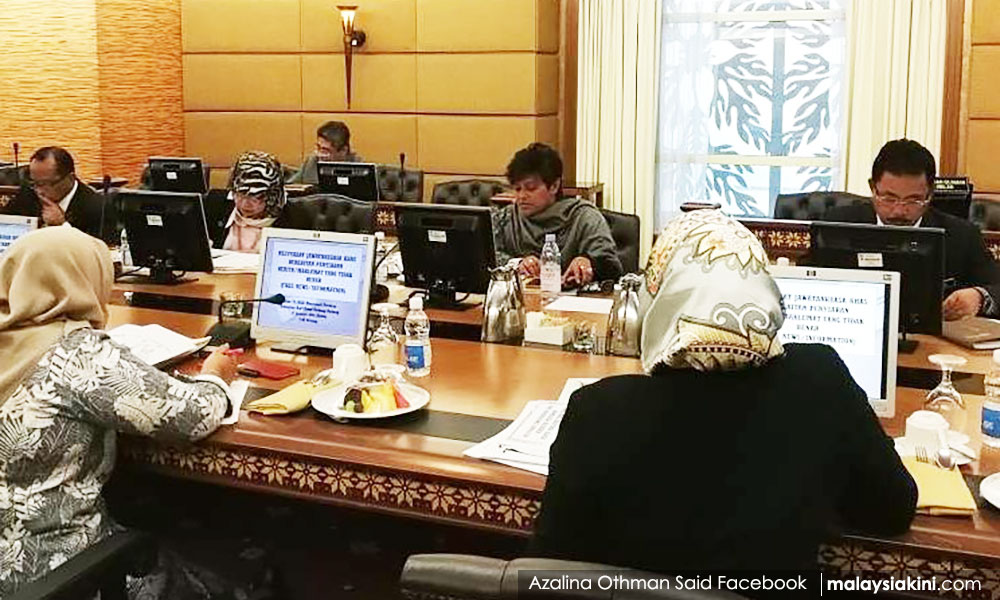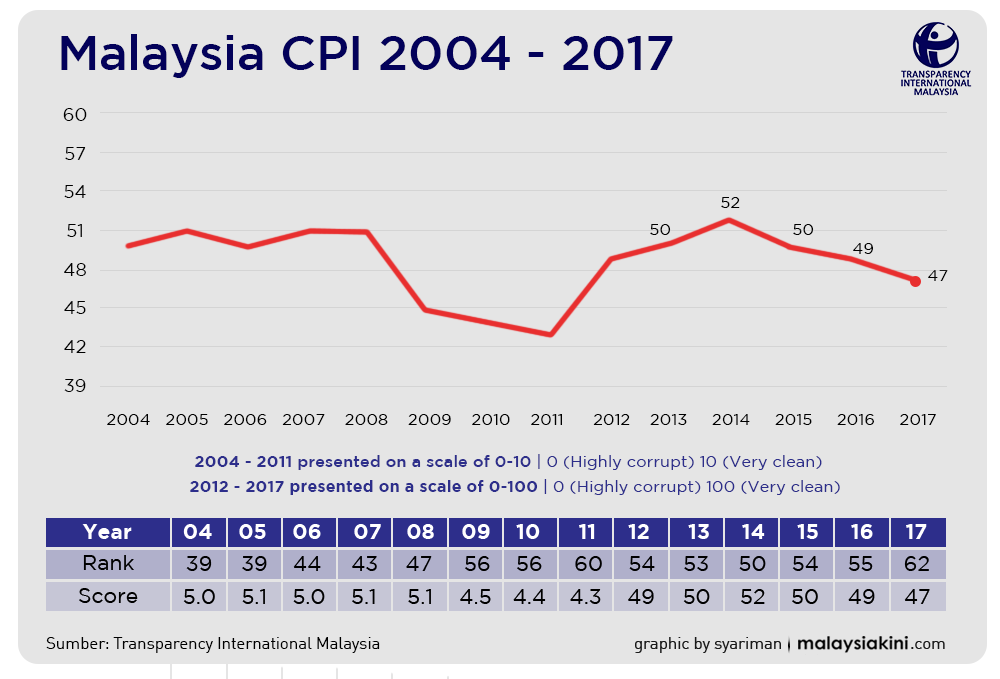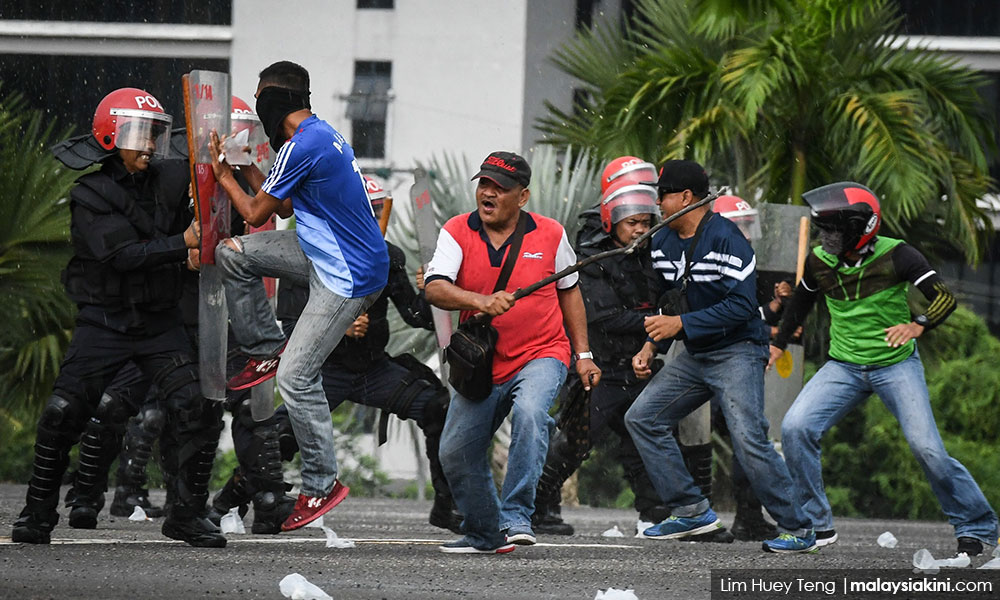LETTER | Our elected representatives have started to perform their main duties in Parliament. Since this will be the last sitting before the general elections, we expect them to voice our most pressing concerns.
But during election campaigns, issues may be treated like tissues to be discarded after they have fulfilled their function.
One of these is the proposed law to curb fake news. We do not have to guess whether it will be passed, because of the speed with which it went through to be in a final draft stage.
Even the British and the French mulled over similar legislation at the same time as us. Even the Yang di-Pertuan Agong touched on it in his royal address.
Fake news exploits the functional logic of social networks. Some hot topics can be fabricated and sensationalised to accomplish a purpose with evil intentions: the abuse of power, racial conflict, war, etc.

If the news is not clear whether it is fake or not, people lose their confidence in the state. This mistrust is a poison that will destroy society, one drop of fake news at a time.
One recent example are the articles written about one of Malaysia’s most decorated sons and also the richest man. At first glance I knew the articles were mostly fake, since they included conspiracy theories.
But surprisingly ministers jumped on the bandwagon, saying his business boomed due to government help, he is ungrateful, forgetting his roots, etc., but worst of all was the name calling.
It demonstrates their cognitive bias in propaganda. I truly wonder how they could have made such statements without questioning the veracity of the articles.
The Communications and Multimedia Commission has since instructed the writer to remove the articles, citing violation of Section 233 of the Communications and Multimedia Act.
This section criminalises the use of network facilities or network services to transmit any communication that is deemed to be offensive and could cause annoyance to another person. Upon conviction, be liable to a fine or to imprisonment or to both. However, there is no mention about any charges or investigations to be carried out.
I do wonder how the ministers who jumped on the bandwagon would consider and act on the proposed law on fake news when it is open for discussions in the cabinet.
Political funding has been discussed at so many fora over nearly three decades, but regrettably no solution has been found. It compares unfavourably with the speed that the proposed law on fake news was drafted. Recent articles by Edmund Terence Gomez and Chandra Muzaffar provide good accounts of the facts, conditions and events on why we are not seeing any light at the end of the tunnel.

Another topic to be discussed is the widespread corruption in the country. We have dropped seven places to 62nd position in the Transparency International Corruption Perception Index (CPI) for 2017. We should not rest easy knowing that the threat of corruption has not abated.
Hardly two weeks after the drop in CPI was announced, we are fed with two other sensational cases.
The MACC is now investigating a GLC suspected of being involved in corruption and power abuse involving more than RM100 million. MACC has also begun an investigation into a police CID director over some deposits into his Australian bank account. Hopefully, details will be sought from the Australian authorities.
For the CID director’s case, it really does not help when a cabinet member said Australia is trying to embarrass our country, and that it had to wait for a report to be lodged to start investigations.
Even the latest statement from the inspector-general of police saying the CID director fully intends to regain his money, contradicts with what the latter had said about not fighting to have the money returned because of high legal costs.
Further, saying the director – a senior officer, being “naïve” about Australian laws reflects very badly on our police force.
On security: everybody is gearing up for the “mother of all elections,” the police have conducted drills and have tested police teams’ responses to social unrest since November 2017. Such drills, including evacuating the prime minister during the post-election period, were never carried out in the past.
To show its seriousness, the Selangor police had just completed its second drill and carrying out a postmortem before deciding on a third.

I for one would not want to believe there will be social unrest because many Malaysians want to forget May 13, 1969, but sadly there are still people trying their best to remind us and relive the moment of tragedy.
To allay fears on security or social unrest, I would suggest the august house to invite the inspector-general of police to give a briefing in camera on the security situation and state the police’s allegiance to the winning group, whomever it may be. I have complete trust in the abilities of our police force.
Bearing in mind that in Malaysian political and constitutional terminology, a caretaker government starts when the parliament is dissolved for a period after the election, until the next cabinet is appointed.
A caretaker government is expected to conduct itself in accordance with a series of well-defined conventions, although there is no law compelling the caretaker government to do so.
Borrowing the words of another minister, “Do it for the people, not political gain” and never bite the hand which feeds you, i.e., we the rakyat.
“O you who believe stand up as a witness for Allah in all fairness, and do not let the hatred of people deviate you from justice (‘adl). Be just, this is closest to piety.“ (Quran, Al-Maidah, 5:8)
The views expressed here are those of the author/contributor and do not necessarily represent the views of Malaysiakini.

